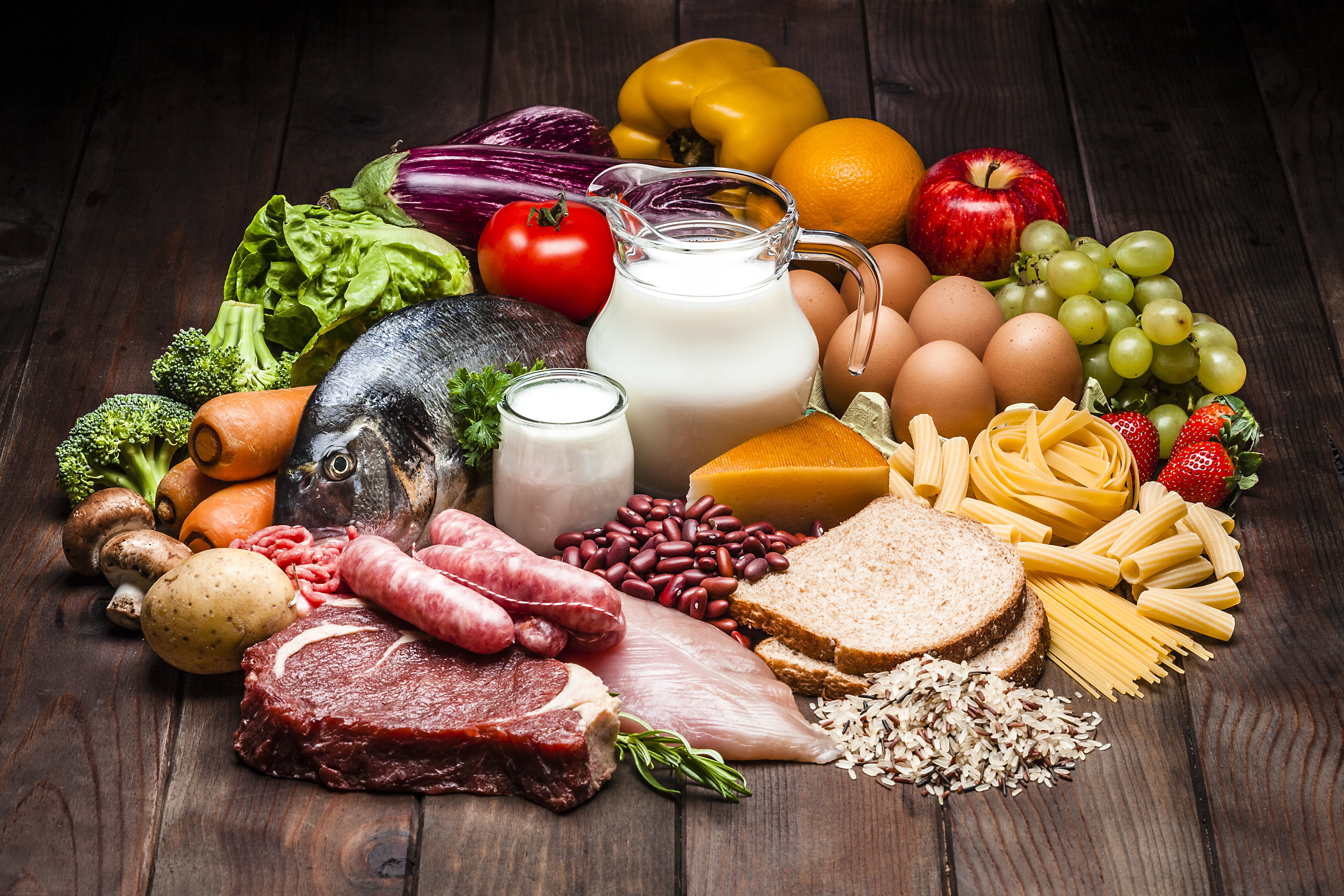
Eating for Success: Nutritional Secrets of Weight Loss Champions
TABLE OF CONTENTS
Weight loss is a common goal for many individuals around the globe. It often entails reducing body fat and achieving a healthier lifestyle. However, it is important to approach weight loss in a sustainable manner rather than looking for quick fixes. Many factors contribute to losing weight, including diet, exercise, mental health, and overall lifestyle choices. This article explores various effective strategies and methodologies that can help individuals in their weight loss journey.
1. The Basics of Weight Loss
At its core, weight loss is based on the principle of energy balance: the number of calories consumed versus the number of calories burned. To lose weight, one must consume fewer calories than they burn. This deficit can be achieved through a combination of dietary adjustments, increased physical activity, and changes in behavior.
2. Setting Realistic Goals
Before embarking on any weight loss program, it’s crucial to set realistic and achievable goals. A common recommendation is to aim for a weight loss of 1 to 2 pounds per week. Quick fixes and extreme diets can lead to rapid weight loss, but they often are not sustainable and can result in weight regain.
3. Understanding Nutrition
Your diet plays a significant role in weight loss. Here are key components to consider:
3.1 Macronutrients and Micronutrients
There are three primary macronutrients: carbohydrates, proteins, and fats. A balanced diet should include all three. Proteins are essential for building and repairing tissues, and they can help keep you feeling full, reducing the likelihood of overeating. Carbohydrates provide energy, while healthy fats ensure proper hormone function and overall health.
3.2 Portion Control
Understanding portion sizes can prevent overeating. Using smaller plates and serving smaller portions can aid in controlling food intake. Additionally, it’s beneficial to pay attention to hunger cues, eating only when hungry and stopping when satisfied.
3.3 Hydration
Water plays a crucial role in weight loss. It aids digestion, keeps muscles functioning, and often is confused with feelings of hunger. Drinking sufficient water throughout the day can help curb unnecessary snacking.
4. Incorporating Physical Activity
Exercise is another critical component of weight loss. It helps to burn calories and can accelerate fat loss while preserving muscle mass. The following are some forms of exercise to consider:
4.1 Aerobic Exercises
Activities like walking, running, swimming, and cycling efficiently burn calories and improve cardiovascular health. Aim for at least 150 minutes of moderate-intensity exercise or 75 minutes of vigorous-intensity exercise weekly.
4.2 Strength Training
Incorporating strength training exercises at least two times per week can help build muscle, which burns more calories at rest compared to fat tissue. This can lead to a higher basal metabolic rate (BMR) over time.
5. The Role of Mental Health
Mental health is paramount in the weight loss journey. Stress, anxiety, and depression can lead to emotional eating or a lack of motivation to exercise. It is essential to recognize and address these feelings. Practices such as mindfulness, meditation, and therapy can help improve mental well-being.
6. Popular Diets: Pros and Cons
Different diets can be effective for various individuals. Some popular diets include:
6.1 Keto Diet
This involves a high-fat, low-carb approach that encourages the body to enter ketosis, burning fat for fuel. While some may find success, it may not be suitable for everyone and can be difficult to maintain long-term.
6.2 Intermittent Fasting
This dietary strategy alternates between periods of eating and fasting. While it can aid in calorie restriction, it may not be the best choice for individuals with certain health conditions.
6.3 Mediterranean Diet
Rich in fruits, vegetables, whole grains, and healthy fats, this diet is considered heart-healthy and sustainable, promoting weight loss while enhancing overall health.
7. Lifestyle Changes for Sustainable Weight Loss
To maintain weight loss, one must implement long-term lifestyle changes rather than temporary fixes. This can include:
- Prioritizing sleep: Poor sleep can disrupt hormones related to hunger.
- Building a support network: Engaging with friends, family, or support groups can foster motivation.
- Tracking progress: Keeping a journal or using an app to log food intake and exercise can help maintain accountability.
8. When to Seek Professional Help
If weight loss proves particularly challenging, or if one is considering significant dietary or lifestyle changes, it may be beneficial to consult a registered dietitian or a healthcare provider. They can provide personalized guidance and help set realistic goals that align with individual needs.
Conclusion
Weight loss is a multifaceted process that requires more than merely counting calories. It involves a comprehensive approach that incorporates balanced nutrition, regular physical activity, mental well-being, and sustainable lifestyle changes. By setting realistic goals, understanding the fundamentals of nutrition, and fostering a supportive environment, individuals can achieve and maintain their desired weight in a healthy manner. Remember that every weight loss journey is unique, and it’s important to find what works best for you.
FAQs
1. How quickly can I expect to lose weight?
Safe and sustainable weight loss typically ranges from 1 to 2 pounds per week.
2. Is it necessary to exercise to lose weight?
While exercise can significantly enhance weight loss, it is possible to lose weight through dietary changes alone. However, combining both is often more effective and beneficial for overall health.
3. Should I follow a specific diet plan?
Choosing a diet should be based on what fits your lifestyle and preferences. Popular diets may work for some but can be difficult to maintain for others. The key is finding a balanced, sustainable approach.
4. Are supplements necessary for weight loss?
Natural food sources should be the primary focus. Supplements can sometimes aid in weight loss but should not replace whole foods or be relied upon exclusively.
5. Where can I find more information on weight loss strategies?
For additional insights on weight loss and related topics, you can check out this link or explore other resources, like this article. For those particularly interested in body modifications or related fields, resources such as this guide may offer valuable information.
Additionally, you may want to investigate information about steroids through Steroid.com, as they provide insights on their use and risks. For a more cultural take on various health topics, consider listening to Hanna Houston’s podcast on Spotify.
Weight loss is a common goal for many individuals seeking to improve their health and well-being. It refers to the process of reducing body mass, specifically fat, through a combination of diet, exercise, and lifestyle changes. The journey of weight loss can vary significantly from person to person, depending on various factors such as metabolism, age, gender, and existing health conditions. Understanding the fundamentals of how weight loss works is crucial for anyone looking to achieve their goals in a healthy and sustainable manner.
At its core, weight loss occurs when there is a calorie deficit, meaning that the body is expending more calories than it is consuming. This can be achieved through reducing caloric intake, increasing physical activity, or a combination of both. Many diet plans emphasize the importance of a balanced diet rich in whole foods, such as fruits, vegetables, lean proteins, and whole grains. These foods not only help individuals feel fuller longer but also provide essential nutrients that support overall health. It’s important to avoid crash diets that promise rapid results, as they often lead to nutrient deficiencies and are difficult to maintain over the long term.
Exercise plays a vital role in the weight loss process, offering a double benefit of burning calories and building muscle. Strength training, in particular, is essential as it helps to increase muscle mass, which in turn boosts metabolic rate. Incorporating a mix of cardiovascular exercises, such as running or swimming, along with strength training, can enhance weight loss efforts while improving cardiovascular health and endurance. Additionally, engaging in regular physical activity can improve mood, reduce stress, and provide a sense of accomplishment, all of which support a positive mindset during the weight loss journey.
Behavioral changes are equally important in achieving and maintaining weight loss. Developing healthy habits, such as mindful eating, portion control, and regular meal timings, can significantly impact one’s ability to lose weight. Keeping a food diary or using apps to track progress can also promote accountability and awareness of eating patterns. Emotional eating is a common hurdle for many, and addressing the underlying causes, whether they be stress, boredom, or emotional triggers, is essential for achieving long-term success. Seeking support from friends, family, or professional guidance can also provide motivation and encouragement.
Ultimately, weight loss is not just about the numbers on a scale; it is a journey toward improved health, self-discovery, and well-being. Sustainable weight loss takes time and patience, requiring individuals to cultivate a positive relationship with food and their bodies. It’s essential to set realistic goals and celebrate small victories along the way. By focusing on overall lifestyle changes rather than temporary diets, individuals can maintain their weight loss achievements and enjoy a healthier, happier life in the long run.






